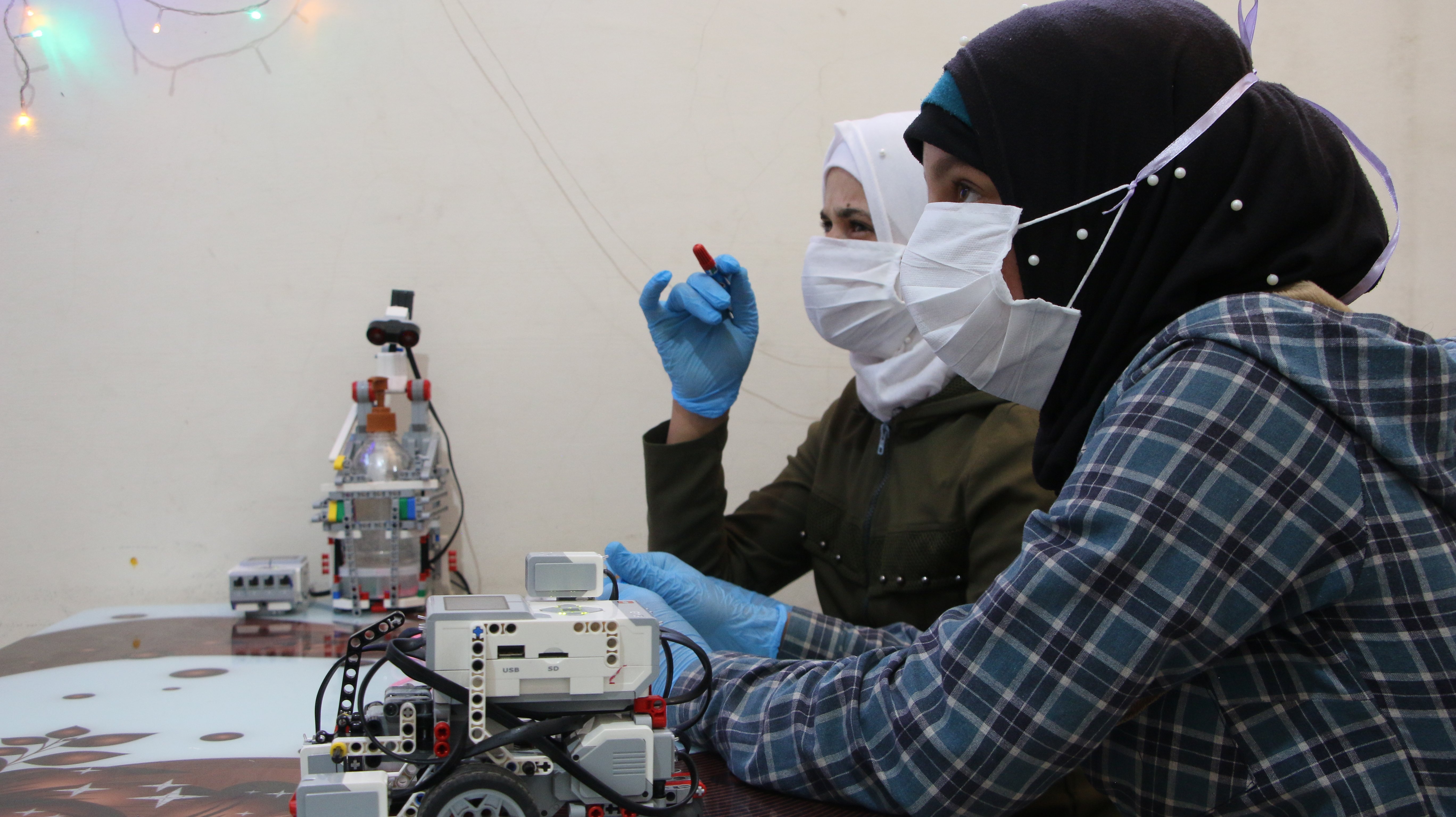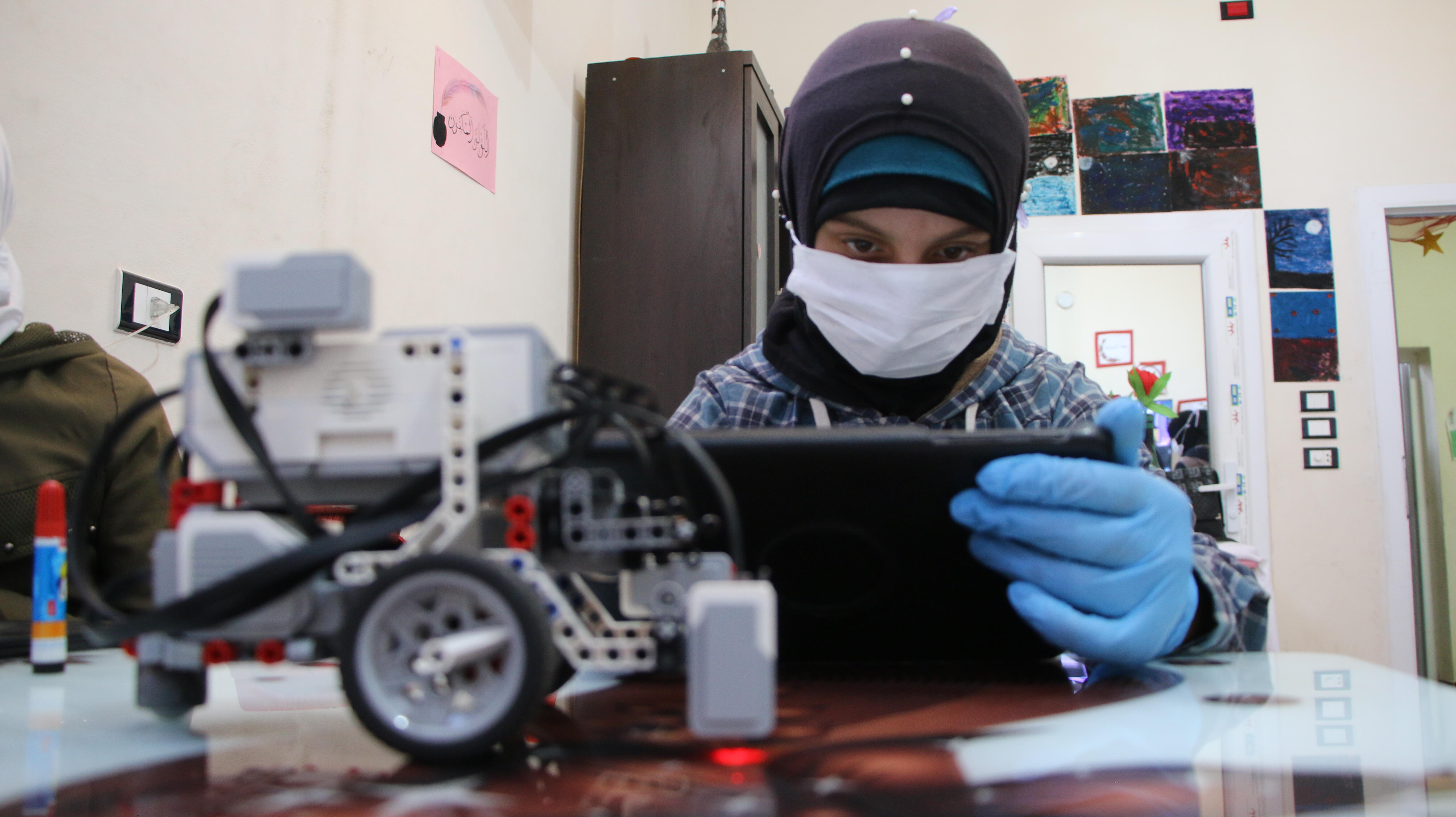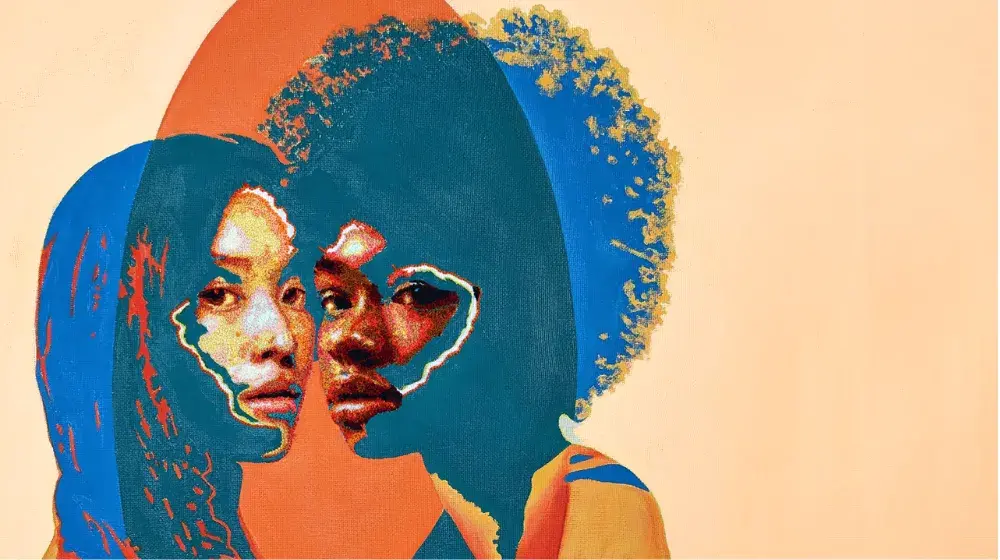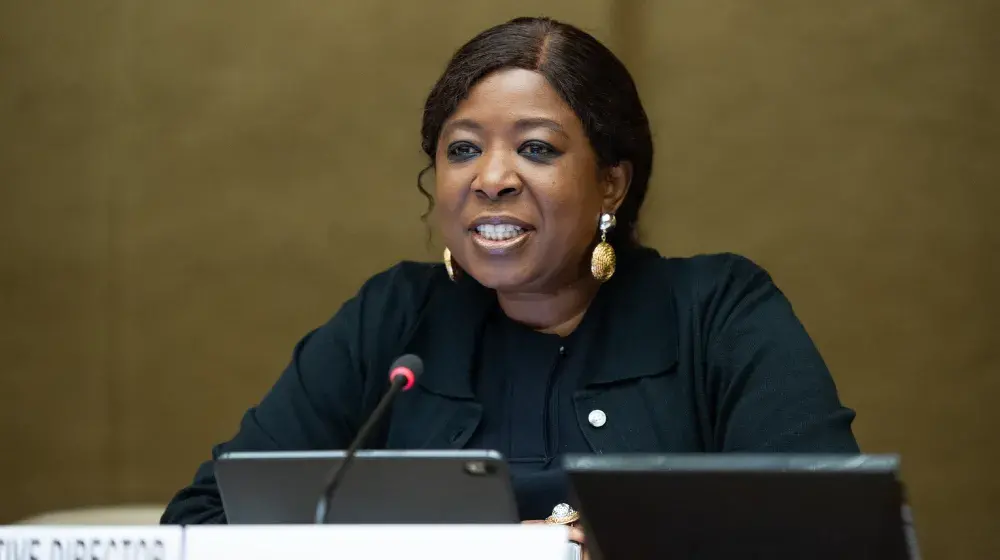Every year, millions of women and girls across the world are kept away from science and technology. This is due to long-standing biases and gender stereotypes, in addition to a lack of resources, tools and guidance. As research shows, less than 30% of researchers worldwide are women. And, only 35% of all students enrolled in science, technology, engineering and mathematics related fields of study are females.
Fatima is one, of the many girls in the world, who face such challenges. She is 13 years old and living with her parents, four sisters and two brothers in Northwest Syria. The conflict has forced Fatima’s family to move several times in order to protect their lives.
Yet, one day, Fatima was given a chance – an opportunity to realize her potential and ability to make science. This was the day she crossed paths with the “Women and Girls Safe Space (WGSS)”, a Center which is run by UNFPA’s implementing partner Ihsan Relief and Development and funded by the Embassy of Canada to Turkey, which has changed Fatima’s life in an unprecedented way and given her confidence.
Fatima explains how she discovered the Center and the scientist inside her: “Because of the attacks and fighting, my father would not let us go outside. One day though, a group of friendly people visited us and explained that there is a safe place where women and girls can go to learn new life skills. My father was hesitant, but he was told that it was only for females and that we could get safe transport there. I started attending the robot programme and learned how to build robots. It was so fun!”
Of the 4.1 million people in Northwest Syria, 2.7 million have remained in displacement and 2.8 million in need of humanitarian assistance. About 1.5 million people living in displacement camps, of whom are women and children, among the most vulnerable. COVID-19 has made the situation even worse for the population that have experienced ten years of conflict in those areas.
With the support of UNFPA Turkey's cross border operations, adolescent girls in northwest Syria are empowered to improve their daily lives and have access to sexual and reproductive health and rights information and services. They have been given a chance – the unique opportunity to learn new skills that help to build their resilience in order to realize their full potential – maybe as scientists!
The UNFPA-supported WGSS Center where Fatima has learnt to build robots is funded by the Embassy of Canada to Turkey and run by the NGO - Ihsan Relief and Development. With the financial support of Canada, UNFPA has provided services to women and girls through three reproductive health facilities and seven Women and Girls Safe Spaces since 2020 throughout Northwest Syria.





